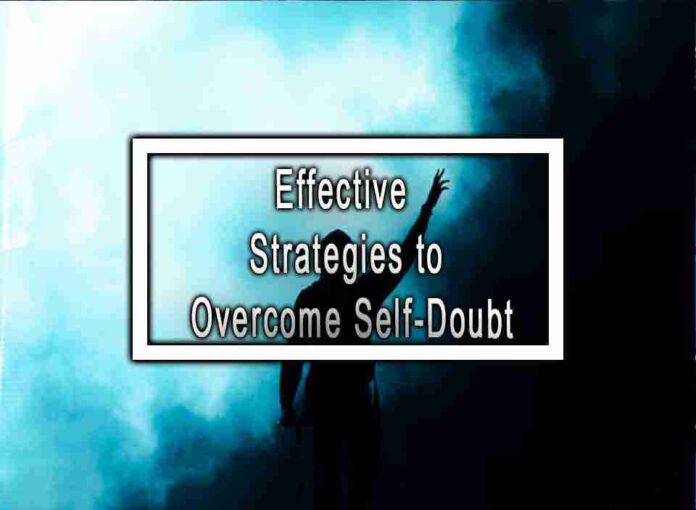Self-doubt can be a common and challenging obstacle that hinders personal growth and achievement. Overcoming self-doubt requires self-awareness and the implementation of effective strategies. Here are some strategies to help you overcome self-doubt:
1. Identify and Challenge Negative Thoughts:
Pay attention to your negative thoughts and self-criticisms. Challenge these thoughts by questioning their validity and evidence. Replace them with more realistic and positive affirmations about yourself and your abilities.

2. Celebrate Past Achievements:
Reflect on your past accomplishments and successes, no matter how small they may seem. Remind yourself of the challenges you have overcome and the progress you have made in various areas of your life.
3. Set Realistic Goals:
Set achievable and realistic goals for yourself. Break larger goals into smaller, manageable steps. Celebrate each milestone you achieve along the way. This approach can build your confidence and motivation to tackle more significant challenges.
4. Focus on Your Strengths:
Recognize and embrace your strengths and unique qualities. Concentrate on what you are good at and use these strengths to your advantage in various aspects of your life.
5. Embrace Failure as a Learning Opportunity:
Accept that failure is a natural part of the learning process. View setbacks as opportunities for growth and improvement. Instead of dwelling on failures, extract lessons from them and use those insights to do better next time.
6. Limit Social Comparison:
Avoid excessive comparison with others, especially through social media, as it can fuel self-doubt and negatively impact self-esteem. Remember that everyone has their unique journey and struggles, and comparing yourself to others may not accurately reflect your own accomplishments.
7. Seek Support and Encouragement:
Talk to supportive friends, family members, or a mentor about your self-doubt. Surround yourself with people who uplift and encourage you. Their support can help you see yourself in a more positive light.
8. Practice Self-Compassion:
Treat yourself with kindness and self-compassion. Be understanding of your mistakes and shortcomings, just as you would be to a friend. Avoid being overly critical of yourself.
9. Step Out of Your Comfort Zone:
Challenge yourself to step out of your comfort zone and try new experiences. Facing new challenges can help you build confidence and prove to yourself that you are capable of handling unfamiliar situations.
10. Seek Professional Help if Needed:
If self-doubt is significantly impacting your daily life and well-being, consider seeking support from a counselor or therapist. They can provide valuable insights and strategies to address deeper issues related to self-doubt.
Remember that overcoming self-doubt is an ongoing process, and it’s okay to have moments of uncertainty. Be patient with yourself and practice these strategies consistently. Over time, you can develop greater self-confidence and a more positive outlook on yourself and your abilities.










